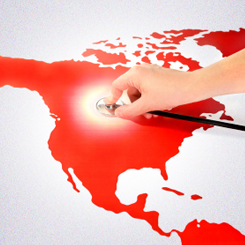 Medical tourism has become something of a catch phrase in the modern media. Medical journals discuss medical tourism as a means of boistering a country’s medical industry. Travel organizations advertise the medical benefits available to tourists within a particular region. Medical tourism is praised as a fresh, modern way of helping to grow local economies by making their medical specialties available to tourists. But just what is this trend taking the medical industry by storm and changing the way we think about the accessibility of medicine?
Medical tourism has become something of a catch phrase in the modern media. Medical journals discuss medical tourism as a means of boistering a country’s medical industry. Travel organizations advertise the medical benefits available to tourists within a particular region. Medical tourism is praised as a fresh, modern way of helping to grow local economies by making their medical specialties available to tourists. But just what is this trend taking the medical industry by storm and changing the way we think about the accessibility of medicine?
Medical tourism is the practice of travelling for the purpose of taking advantage of a foreign medical system. It emerged with convenience of travel as airline and vehicle transportation became prominent and commonplace. The addage “The world is a small place” describes the attitude that facilitated medical tourism. It used to be common practice for people to stay within their own native region to receive medical care, but since medical tourism emerged, it is becoming more and more popular to consider the global medical market when selecting healthcare for one’s self or for their dependents. Even a number of developing nations, such as Mexico and Thailand, have significantly boistered their medical industries by openig them up to citizens of foreign countries.
Free health insurance or significantly cost reduced health insurance is typically only available to citizens or residents of any given country. However, that side of healthcare economy is also changing in light of medical tourism. Reasonably priced travel insurance policies are becoming available to those who want to travel abroad to receive healthcare. For those whom money is not an object, medical tourism is an older tradition, but in modern times, more and more medical tourism options are becoming available to those who are not independently wealthy. Many health industry professionals consider medical tourism to be the way of the future. It helps regional economies, enables a productive exchange of information and forms relationships across borders.